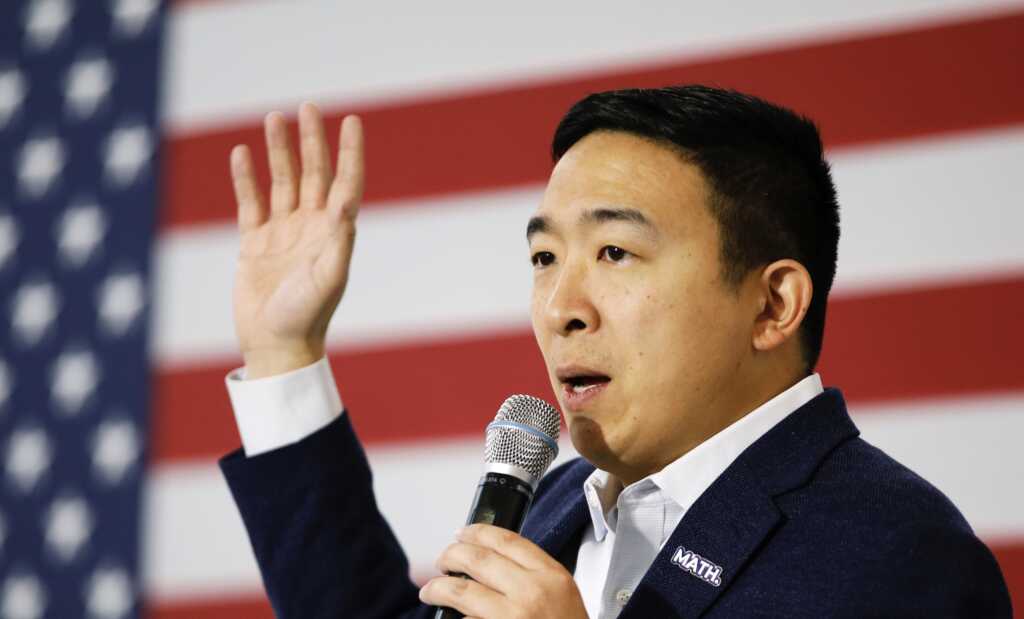Former presidential candidate turned CNN commentator Andrew Yang is calling out the Democratic Party for its “fundamental problem” with working-class Americans.
In making his point, Yang told left-leaning CNN anchor Don Lemon that, when he was on the campaign trail competing for the Democratic presidential nomination, many Americans “would flinch” when he told them his political party.
“There’s something deeply wrong when working-class Americans have that response to a major party that theoretically is supposed to be fighting for them,” he told Lemon. “So you have to ask yourself, what has the Democratic Party been standing for in their minds? And in their minds, the Democratic Party, unfortunately, has taken on this role of the coastal urban elites who are more concerned about policing various cultural issues than improving their way of life that has been declining for years.”
Just a few days ago, Lemon himself proved Yang’s point.
At the end of October, Lemon told fellow CNN anchor Chris Cuomo he has cut ties with anyone in his life whose political views don’t align with his own progressive perspective.
Speaking of people in his life who have supported President Donald Trump, Lemon said: “I had to get rid of them, because they are too far gone. … I had to get rid of a lot of people in my life, because sometimes you just have to let them go. I think that they have to hit rock bottom like an addict, right? And they have to want to get help, they have to want to know the truth, they have to want to live in reality, they have to want to be responsible, not only for other people’s lives, but for their lives.”
Lemon has frequently alienated those whose views are different from his own, often belittling and talking down to those who have supported Trump. Nevertheless, in late September, CNN’s Brian Stelter tried to argue to radio host Hugh Hewitt that Lemon is an objective news reporter.
Anything else?
Yang went on to say the polarization in the U.S. will only “get worse” if the Democratic Party can’t come to terms with its failure to appeal to working-class Americans — a demographic that has shifted toward Republicans in the Trump era.
“They lost a plant that had 1,500 workers,” he explained. “And so if you’re a laid-off worker from that plant, and you say, ‘What is the Democratic Party doing for me?’ It’s unclear. We can talk about a unifying message from Joe Biden — he’s a naturally unifying figure — but then there’s the reality on the ground where their way of life has been disintegrating for years.”
“If we don’t do that,” he continued, “then we’re going to see a continued acceleration toward the institutional mistrust that animated the Trump vote and will continue to do so.”
For months leading up to Election Day, pollsters and Democrats promised an epic “blue wave” that would give the Democratic Party a “mandate” going into 2021. That, however, has not happened. Republicans made gains in the U.S. House of Representatives and they’re poised to maintain control of the U.S. Senate — even if the presidency goes to Joe Biden by hairline margins.
Democratic congressional members discussed the disappointing showing during a caucus conference call Thursday.
One lawmaker — Rep. Abigail Spanberger (D-Va.) — was particularly animated, yelling to her fellow progressives: “We lost races we shouldn’t have lost. ‘Defund the police’ almost cost me my race because of an attack ad. Don’t say ‘socialism’ ever again. We need to get back to basics.”
House Majority Whip Jim Clyburn (D-S.C.) also told his colleagues if “we are going to run on ‘Medicare for all,’ ‘defund the police,’ socialized medicine, we’re not going to win.”
House Speaker Nancy Pelosi (D-Calif.) disagreed with Spanberger’s prediction that Democrats would face big losses during the 2022 midterms if they didn’t make adjustments to their messaging. Pelosi, for her part, claimed the election has handed Democrats “a mandate.”



